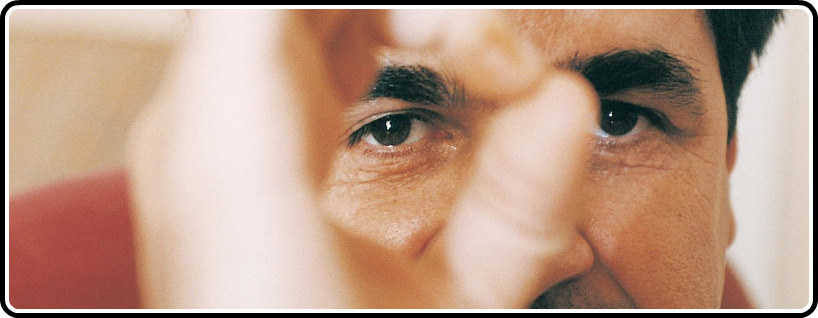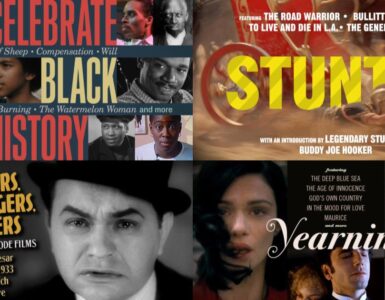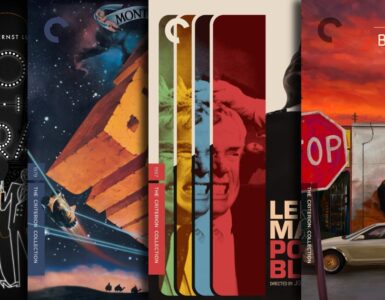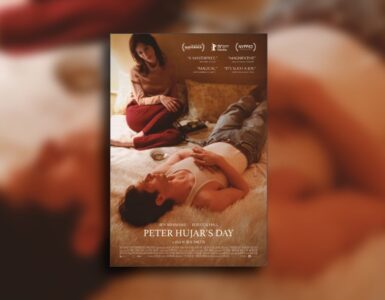With his trial underway, Jafar Panahi , the Iranian filmmaker behind such wonders as The White Balloon, has made a statement regarding his recent run in with Iranian officials, and can be read by any and all.
For those who may not remember, or haven’t been up to speed regarding the Panahi’s case, the filmmaker was arrested in March, after coming under fire from officials for his support of the opposition party in the recent, and highly contested, Iranian Presidential election. After spending an unjust 88 days in prison, the director was set free, and is now in the midst of a legal battle.
In his statement , which is now available to read, in its entirety, on his Facebook page, he accuses authorities of sending a message close to ‘you will repent if you don’t think like us.’ Here’s his statement to the court made last week:
Your Honor, I would like to present my defense in two parts.
Part 1: What they say.
In the past few days I have been watching my favorite films again, though I did not have access to some of them, which are among the greatest films of the history of cinema. My house was raided on the night of March 1, 2010 while my colleague Mr. Rasoulof and I were in the process of shooting what we intended to be a socially conscious art-house film. The people, who identified themselves as agents of the Ministry of Intelligence, arrested us along with other crew members without presenting any warrants. They confiscated my collection of films as well and never returned them to me. Subsequently, the only reference made to those films was by the prosecutor in charge of my case, who asked me: ‘What are these obscene films you’re collecting?’
I have learned how to make films inspired by those outstanding films that the prosecutor deemed obscene. Believe me I have just as much difficulty understanding how they could be called obscene as I do comprehending how the activity for which I was arrested could be seen as a crime. My case is a perfect example of being punished before committing a crime. You are putting me on trial for making a film that, at the time of our arrest, was only thirty percent shot. You must have heard that the famous creed, ‘There is no god, except Allah,’ turns into blasphemy if you only say the first part and omit the second part. In the same vein, how can you establish that a crime has been committed by looking at 30 percent of the rushes for a film that has not been edited yet?
I do not comprehend the charge of obscenity directed at the classics of film history, nor do I understand the crime I am accused of. If these charges are true, you are putting not only us on trial but the socially conscious, humanistic, and artistic Iranian cinema as well, a cinema which tries to stay beyond good and evil, a cinema that does not judge or surrender to power or money but tries to honestly reflect a realistic image of the society.
One of the charges against me is attempting to encourage demonstrations and incite protests with this film. All through my career I have emphasized that I am a socially committed filmmaker not a political one. My main concerns are social issues; therefore my films are social dramas not political statements. I never wanted to act as a judge or a prosecutor. I am not a filmmaker who judges but one who invites other to see. I don’t get to decide for others or to write any kind of manual for anybody; please allow me to repeat my [intention] to place my cinema beyond good and evil. This kind of belief has caused my colleagues and myself a lot of trouble; many of my films have been banned, along with the films of other filmmakers like me. But it is unprecedented in Iranian cinema to arrest and imprison a filmmaker for making a film, and harass his family while he is in prison. This is a new development in the history of Iranian cinema that will be remembered for a long time.
I have been accused of participating in demonstrations. No Iranian filmmaker was allowed to use his camera to capture the events but you can not forbid an artist to observe! As an artist it is my responsibility to observes in order to get inspired and create. I was an observer, and it was my right to observe.
I have been accused of making a film without permission. Is it really necessary to point out here that no law has been passed by the parliament regarding the need for a permit to make a film? There are only some internal memos which are going through changes each time the deputy minister is changed.
I have been accused of not giving a script to the actors. In our filmmaking genre where we work mostly with non-professional actors, this is a very routine way of filmmaking practiced by myself and many of my colleagues; the cast mostly consists of non-actors. Therefore, the director does not find it necessary to give them a script. This accusation sounds more like a joke that has no place in the judiciary system.
I have been accused of having signed a declaration. I have singed one: an open letter signed by 37 prominent film makers, in order to express their concern about the turn of events in the country. I was one of them. Unfortunately, instead of listening to the concerns, we were accused of treachery. However, these filmmakers are the very same people who have expressed their concerns in the past about injustices around the world. How can you expect them to remain indifferent to the fate of their own country?
I have been accused of organizing demonstrations at the opening of Montreal Film Festival. At least some truth and fairness should back up any accusations. I was the chair of the jury in Montreal and arrived only a few hours before the opening. How could I have organized a demonstration in a place where I hardly knew anyone? Let’s not forget that in those days the Iranian Diaspora would gather at any relevant event around the world to voice their demands.
I have been accused of giving interviews to Persian-speaking media abroad. I know for fact that there are no laws forbidding us from giving interviews.
Part 2: What I say.
History testifies that an artist’s mind is the analytical mind of his society. By learning about the culture and history of his country, by observing the events that occur in his surroundings, he sees, analyzes and presents issues of the day through his art form to the society.
How can anyone be accused of any crime because of his mind and what passes through the mind?
The assassination of ideas and sterilizing artists of a society has only one result: killing the roots of art and creativity. Arresting my colleagues and I while shooting an unfinished film is nothing but an attack by those in power on all the artists of this land. It drives this crystal clear however sad message home: ‘You will repent if you don’t think like us.’
I would like to remind the court of yet an other ironic fact about my imprisonment: the space given to Jafar Panahi’s festival awards in Tehran’s Museum of Cinema is much larger than his cell in prison.
All said, despite all the injustice done to me, I, Jafar Panahi, declare once again that I am an Iranian, I am staying in my country and I like to work in my own country. I love my country, I have paid a price for this love too, and I am willing to pay again if necessary. I have yet another declaration to add to the first one. As shown in my films, I declare that I believe in the right of ‘the other’ to be different, I believe in mutual understanding and respect, as well as in tolerance; the tolerance that forbid me from judgment and hatred. I don’t hate anybody, not even my interrogators.
I recognize my responsibilities toward the future generations that will inherit this country from us.
History is patient. Insignificant stories happen without even acknowledging their insignificance. I, myself, am worried about the future generations.
Our country is quite vulnerable; it is only through the [guarantee] of the state of law for all, regardless of any ethnic, religious or political consideration, that we can avoid the very real danger of a chaotic and fatal future. I truly believe that tolerance represents the only realistic and honorable solution to this imminent danger.
Respectfully,
Jafar Panahi
An Iranian filmmaker
While I often finish a story here with an opinion or series of witty one-liners, it is hard to have any opinion other than the one I am constantly stating. For every filmmaker here stateside that complains about having a studio interfere on their projects, there are filmmakers like Panahi that are not only fighting for their lively hood in the corrupt and authoritarian political system of their native country, but also for the very art that they love and have spent their lives working at. Hopefully Panahi can find justice. Expect much more on this as it comes.






